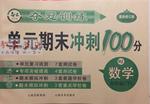题目内容
【题目】_____what they say about me, I’m going to continue my work.
A.In terms ofB.Regardless of
C.Instead ofD.In favor of
【答案】B
【解析】
本题考查动词短语。句意为:不顾他们对我的指指点点,我将继续我的工作。regardless of不顾,不管。in terms of 依据,按照;Instead of代替;In favor of 赞同。

练习册系列答案
 夺冠训练单元期末冲刺100分系列答案
夺冠训练单元期末冲刺100分系列答案 新思维小冠军100分作业本系列答案
新思维小冠军100分作业本系列答案 名师指导一卷通系列答案
名师指导一卷通系列答案
相关题目
